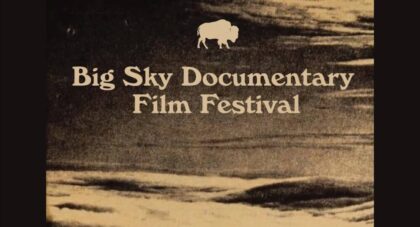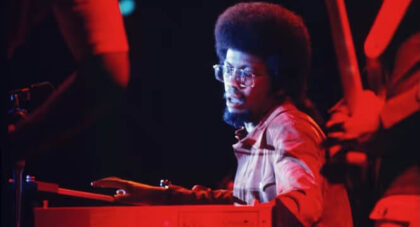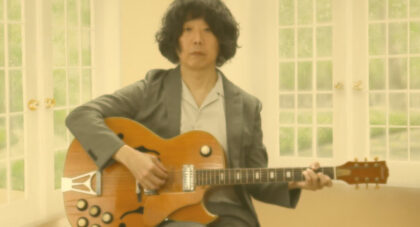(Below, via his home in Athens, GA, Daniel Hutchens shares his thoughts on the life and work of Jim Carroll...)
A while back I wrote a Diversions feature for Aquarium Drunkard about my “ten most influential albums.” I found out ten wasn’t nearly enough. I had to leave off so many albums essential to my musical education, one of which was Jim Carroll’s Catholic Boy.
Upon hearing of Carroll’s death, I’ve found myself compelled to revisit his work, and to write down some of my feelings about it. In my personal life, another member of my extended “family” passed away recently, and I think writing this article provided a kind of therapy...it’s always good to keep busy. And in the process of digging through old notebooks, memories, etc., I’ve discovered Carroll’s writing had even a heavier impact on my own life and work than I’d consciously realized.
I started out writing this piece for publication in Athens, Georgia’s Flagpole Magazine, but they wanted something brief, no more than 850 words. This piece quickly outgrew that format, so I brought it back to Aquarium Drunkard.
Jim Carroll, a truly great poet, punk rock singer, philosopher, artistic heir to outlaw creative types such as Rimbaud and the Beat Generation, and all-around NYC icon for our times, passed away September 11 at his home in Manhattan. The cause was likely a heart attack, according to his former wife, Rosemary Carroll. He was found fallen across his desk, where he had been writing.
Carroll was born August 1, 1949, in New York City, and spent his childhood on the Lower East Side, where he attended Catholic schools. At age 12 he began keeping a series of journals that would eventually become the famed Basketball Diaries, which in 1995 became a mainstream Hollywood movie starring Leonardo DiCaprio. Carroll had mixed feelings about the movie at the time, saying that, “The actors all did great jobs, they’re excellent. It’s just that the movie doesn’t have very much to do with my book.”
The book itself recounts Carroll’s youth, ages 12-15, when he was a star basketball player in school, and an excellent student. He won a scholarship to Trinity, an elite private Manhattan high school. He led his basketball team, the Trinity Tigers, to serious respectability and many triumphs on the court; he was named “All Ivy Player” for his accomplishments.
I came across a videotaped 1991 interview with Carroll, looks like it was done backstage somewhere, in Cleveland, Ohio, in which Carroll recalls detailed enthusiasms of his basketball career that bring to mind some of Jack Kerouac’s descriptions of high school football triumphs, and bedroom made-up sports games——loving, artistic sketches of youthful athletic feats:
“When I came in as a freshman, I scored 47 points in my first game...I could dunk a basketball backwards...When I was a freshman, Calvin Hill, who went on to be the running back for the Dallas Cowboys...was playing for Riverdale...and, um, he played basketball, of course, he was 6’ 4”, he was built like Jim Brown when he was a senior in high school...he was a pretty good basketball player, I remember on a fast break I pinned his shot...pinning is a big woof in New York, on the playgrounds, if you pin a guy...what you’re s’posed to do, y know he takes a layup on a fast break and you pin it to the backboard, y know when you block it, doesn’t matter if you get called for goaltending or not, you got him, y know?”
But The Basketball Diaries also reveal Carroll’s other life: by age 13 he had started dabbling in heroin, just once in a while at first, but as his teenage years progressed he found himself a full-blown junkie, hustling on the streets for money to get his next fix, letting sleazy businessmen blow him in filthy subway station mens’ rooms for cash, rolling drunks for their wallets, snatching purses, whatever.
After Carroll’s sophomore year in high school, the interest in basketball waned, and even the new fixation on drugs couldn’t approach the ever-expanding buzz of what would become a life’s work: poetry. Carroll said in the aforementioned 1991 interview that, “See, then, people thought it was drugs that ruined me [for basketball, after his sophomore year], but it wasn’t. It was poetry, I got interested in poetry. The jock trip was runnin’ thin.”
While writing this article, I contacted Cassie Carter, who is Carroll’s longtime friend and maintainer of his website, CatholicBoy.com. She pointed out the poetry angle of the Diaries to me: “There's basketball, drugs/hustling, and POETRY. Everyone misses that because it's the lens they're looking through, although there are plenty of entries in BD that discuss it directly. Poetry, poetry, poetry. That is the main story of the damn book.”
It’s true. The book gives an adult-dosage-account of a young artist’s coming of age and gaining mastery over his medium, meanwhile wrestling his lusts, pains, confusions, weaknesses, addictions...but also his sudden rushes of joy and enlightenment, his great times “in the zone” on the basketball court, as well as in his notebook...it’s a timeless document. His young life had certainly been a surreal battleground of heroin addiction, hustling for cash, eluding cops, etc. ...on those mythic streets of NYC, which his writings describe as a mix of the Wild West, and some sinister jungle, and a massive private club owned by the super-wealthy and the celebrities and the politicians...but he documented the whole staggering expanse, he dedicated himself to catching those poetic lines as they flew by, and he slapped ‘em down in his notebooks, and he drew a faithful picture of his city in his life in his time.
His first book of poetry, Organic Trains, was published when he was only 16. Meanwhile excerpts of The Basketball Diaries began to appear in The Paris Review. The poet Ted Berrigan took Jim under his wing, and in fact took him to meet Jack Kerouac, one of Jim’s bigtime heroes. Kerouac observed that, at 13, Jim Carroll was writing better prose than most contemporary “famous” novelists.
Another “Beat Generation” legend, William Burroughs, called Carroll a “born writer.” And another great poet/rocker in her own right, Patti Smith, told the New York Times the weekend of Carroll’s passing that, “I met him in 1970, and already he was pretty much universally recognized as the best poet of his generation. The work was sophisticated and elegant. He had beauty.”
Only the good shit. Aquarium Drunkard is powered by its patrons. Keep the servers humming and help us continue doing it by pledging your support.
To continue reading, become a member or log in.


